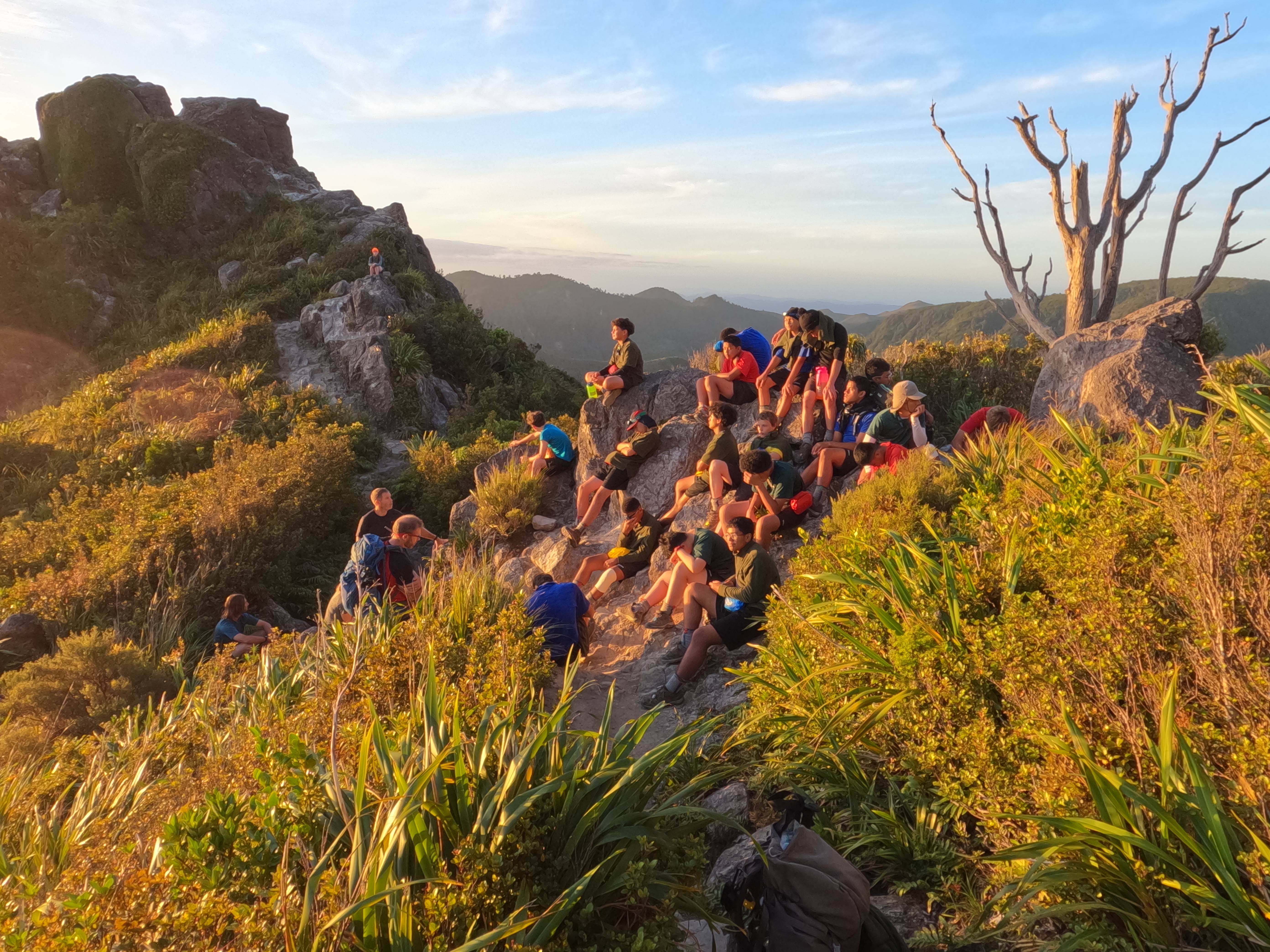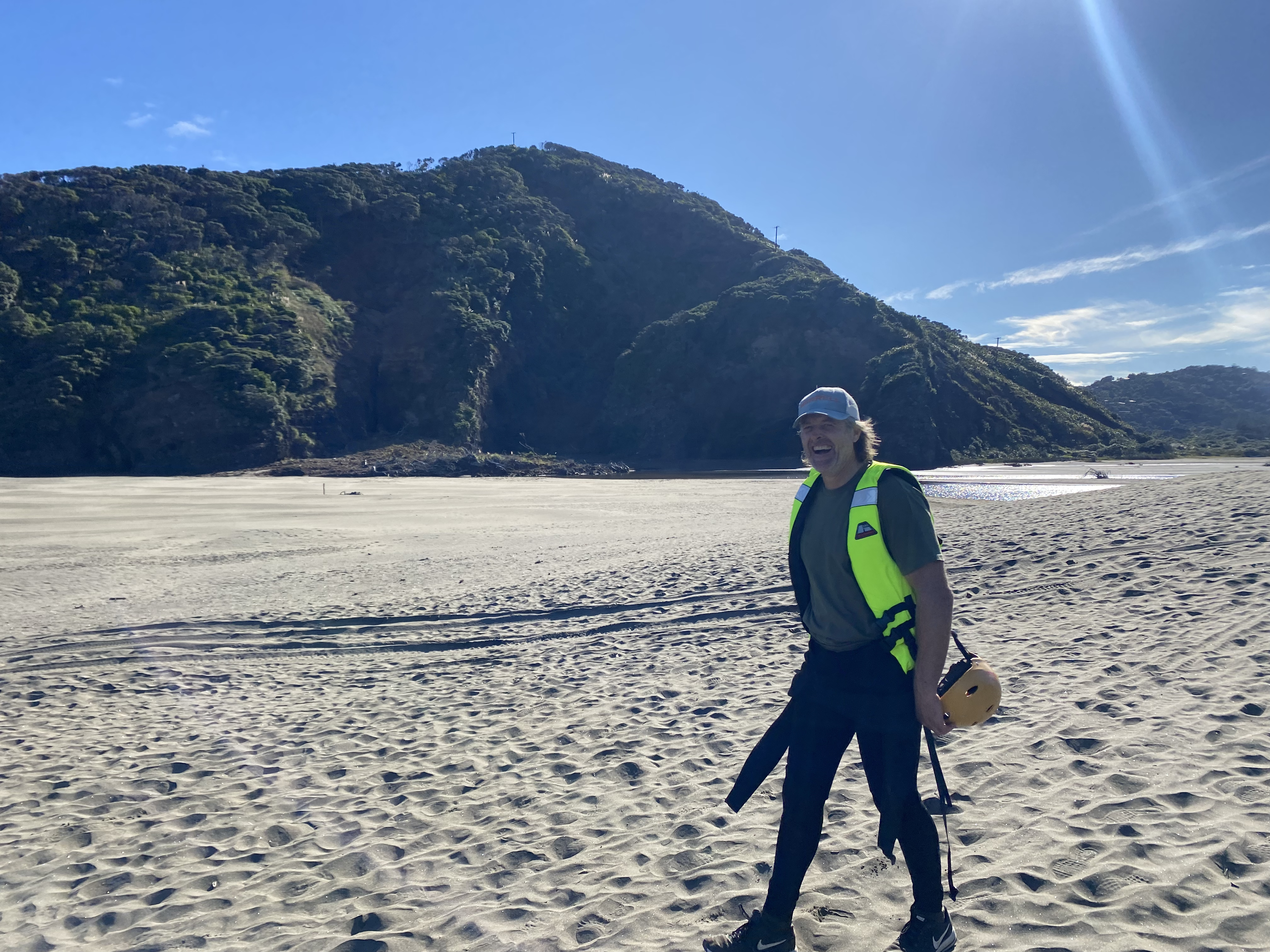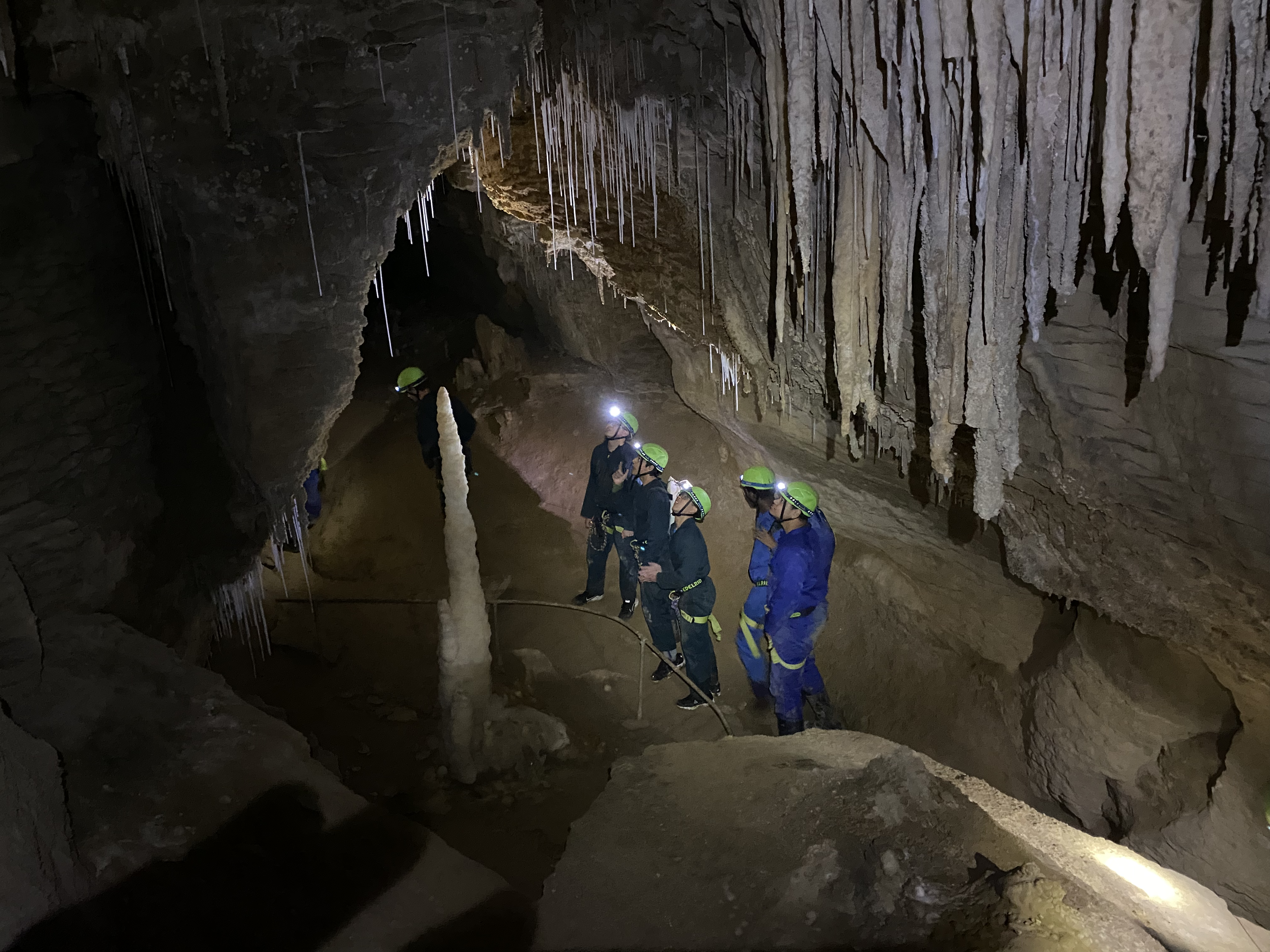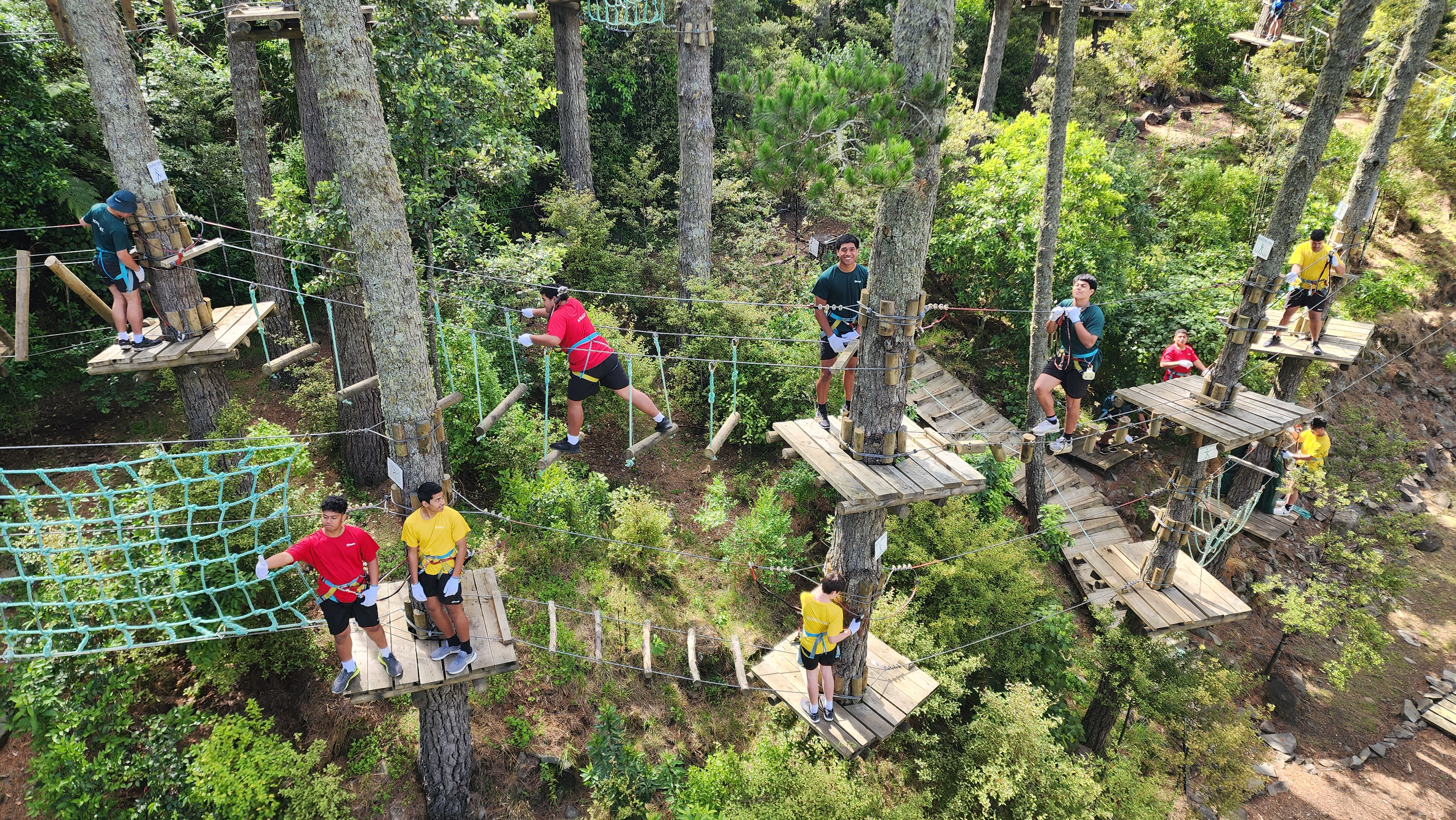Dilworth’s Mangatāwhiri Campus, the home of the school’s outdoor programme, Te Haerenga (the journey), has been transformed over the last two years to provide students with the very best outdoor learning experiences possible. The purpose-built school has exceptional new and refurbished facilities, including a standing campsite designed to teach bushcraft, indoor and outdoor abseiling platforms, a huge indoor climbing wall, a mountain bike track, rugby and football fields, gymnasium and weights room, and high and low ropes course. Located between Puketutu, the Bombay Hills and the Hunua Ranges, the grounds include native trees, bush, and mature fruit trees, with the Mangatāwhiri River on the property’s boundary.

While the facilities offer students access to some of the best learning opportunities in New Zealand, the outdoor curriculum has also been completely reimagined, with new tasks and goals designed to stretch students and grow their confidence - and new staff appointed to run the programme. “We’ve created a bespoke curriculum that spans Years 7 to 13, allowing our students to have learning experiences every year on their journey. The programme has been specifically designed so the experiences and skill acquisition are graduated, with five key skills being learned over time,” says Dilworth’s Headmaster, Dan Reddiex.
“The five key skills are tramping, rock climbing, sea and lake kayaking, mountain biking and water awareness around rivers and on the coast, and as the students learn and their confidence increases, the level of challenge also rises,” Dan says. “The outdoors programme is also fully integrated with our wellbeing programme, Ako Puāwaitanga and provides the perfect practical context for them to apply the critical mental and self-esteem skills they learn there. Our faith-based curriculum is also woven in.”
The leader tasked with helping to design the outdoor curriculum is Jamie Pennell, Dilworth’s Head of Mangatāwhiri Campus. A former captain in the New Zealand SAS, Jamie is an expert on leadership development and has worked to develop the leadership and mental skills capabilities of selected players in the world champion Kiwis rugby league team, the Warriors, and Canberra Raiders rugby league teams in the NRL, the world champion Black Ferns women’s rugby team, and a wide range of corporate clients.

Born in Wellington but largely raised in Massey, Auckland, his father was a master builder, while his mother did night work at a hotel. “She would come home and then prepare the kids for school,” Jamie says. “She didn’t get a lot of rest.”
Jamie had also previously worked with Dilworth on leadership and resilience: “What I saw in that group of Dilworth students was not what I was expecting. They were very engaged, very intelligent, asking a lot of questions, and giving a lot of good answers.” As a result of the success of that relationship, Dan invited him to apply for the role of helping develop the outdoor curriculum and running the campus, and Jamie joined Dilworth in 2022.
Dan says Jamie was appointed because of his unique skill set and outstanding leadership capabilities. “We needed someone who could lead an expert group of adults, who are our teachers and instructors, through our programme change, as well as help design the curriculum to be challenging enough for the students while retaining the highest level of safety. He’s an extraordinary person, and he brings incredible qualities of focus and commitment, as well as the essential coaching skills of kindness and compassion we need to help teenagers get the most out of their experience. He’s a man of exceptional character, and his values align perfectly with ours. It’s evident in the way he conducts himself and in how he treats people.”
The outdoor curriculum works with the students learning at Mangatāwhiri and other places across the motu for different periods depending on their year. In Year 7, juniors attend four times a year for two days, learning the fundamental skills they will carry forward, such as basic bushcraft skills, climbing and high ropes, mountain biking and water skills. In Year 8, the stay is extended to three to four days, with similar challenges slightly increased. In Year 9, the journey steps up to 12 days, with the learning becoming more advanced and stretching the students further. In Year 10, outdoor learning is at its most involved, with individual classes of 24 going out for 23 days. Once students hit senior school and their academic workload increases, the outdoor learning is pared back, with Year 11 doing a three-day caving experience, Year 12 focusing on leadership development, and Year 13 finishing their NCEA exams and then taking three days away. “For the Year 13’s, it’s about closing the loop,” Dan says. “We’re really putting the finishing touches on the rites of passage to being a great young man. It’s a pretty amazing curriculum that works all the way through the school.”
The skills students master across their outdoor learning journey are life-changing for their self-esteem, confidence, leadership, and teamwork, Jamie says. “The programme we’ve built here runs across the disciplines of tramping and bushcraft, sea and lake kayaking, climbing, mountain biking and water-based skills, which includes surf and river awareness. We teach our surf skills on the East Coast for Years 7 and 8 and, the West Coast for Years 9 and 10, and the river crossing skills when we head into the bush. Everything we do is longitudinal and scaffolded, so they’re always taking their skills forward into the next year."

Jamie says Mangatāwhiri’s campus and curriculum have been designed to test students within safe boundaries and that it’s hard to overestimate how valuable this unique outdoor experience is. “Many of our students live in cities and wouldn’t have had an opportunity like this. They might have done a school camp here and there, but this is a significant programme that has been deliberately designed in concert with our other curriculum areas to develop self-efficacy; to have confidence in their own abilities, and self-awareness. We’re teaching them about leading self and engaging better with others."
Jamie says the programme is accredited for the highest level of safety. “We’re operating at a level comparable to a commercial tourism business such as white water rafting or bungee jumping, which means there is a requirement for a comprehensive Safety Management System and regular internal and external auditing. Our programmes are internally audited by our own Director of Health and Safety and externally audited by an industry-recognised organisation called Qual Works. The surf awareness programme sits under Surf Lifesaving New Zealand’s Safety Management System. Our outdoor instructors are either qualified or working towards qualifications through the New Zealand Outdoors Instructor Association, which is the gold standard in delivering outdoor experiences safely. We also bring in specialist instructors, depending on what we’re teaching - for example, we use high-level search and rescue instructors for our caving and underground experiences. Safety is our number one priority and parents quite rightly expect that.”
Only two years in, the outdoor curriculum is already delivering outstanding results, Dan says. “The feedback from our students- especially Year 10, who do the most intensive course - has been phenomenal. We’ve had an influx of emails from parents saying, ‘You know, this has been life-changing for our kid. It’s given him confidence in himself and the ability to conquer things that before he felt were impossible to manage.’ We are getting a lot of that kind of feedback that the learning takes students out of their comfort zones in a safe environment and that parents are really seeing the development and growth in their kids. It breeds a genuine independence because they have to make good choices for themselves at all times; they have to push through on their own internal strength and face some really challenging circumstances.’

Dan says one example is the Mud Run, which he joined in for. “You make your way through deep mud, up to your knees in some places, for an hour. And it’s really about just how hard you’re willing to push yourself, how far you can reach inside and see what you’re made of. Students are responding incredibly positively to those kinds of challenges, and the parents are seeing the fruits of that. They talk to me about how excited they are, how they’ve heard what’s coming up from the older kids, and how they can’t wait to do it. That’s amazing.”
While Dilworth’s Mangatāwhiri Outdoors Campus is already helping create some significant changes, it’s also constantly being refreshed to offer the best experience possible. Jamie: “The programme is designed to evolve. We’re constantly looking at best practices and always trying to improve. We redesign our activities to meet the student needs. The challenge is always first, but it’s also a huge amount of fun. We’re helping to create more resilient young men. Their parents should see changes in the way they operate and engage when they get home, and that’s one of the key outcomes we’re looking for.”

